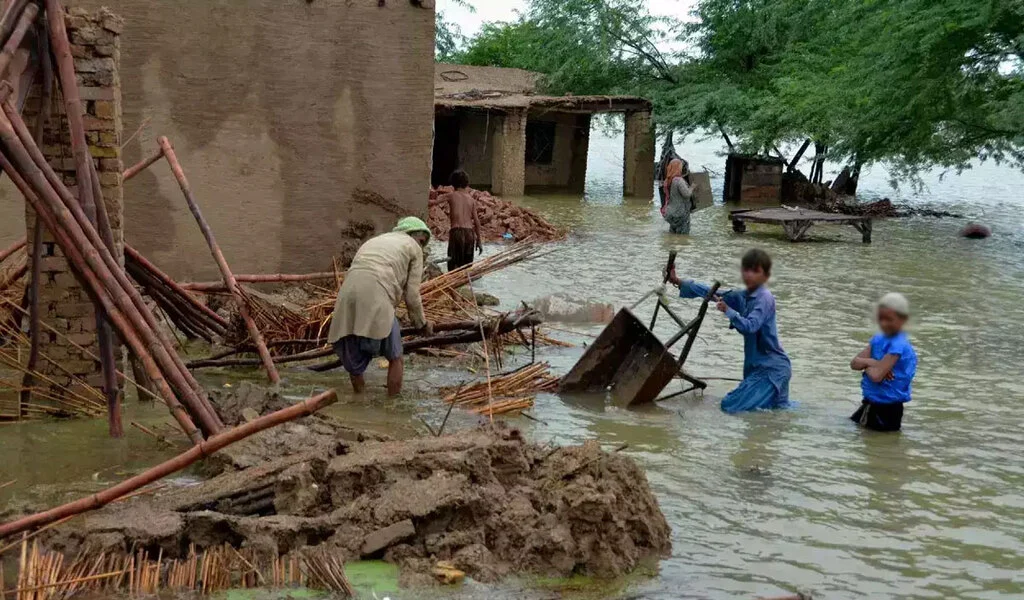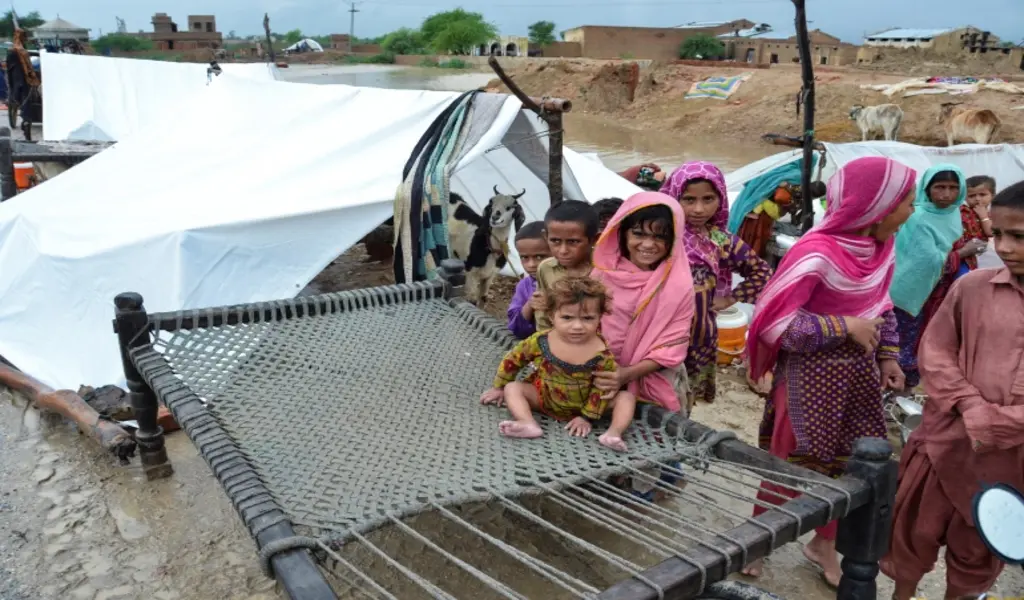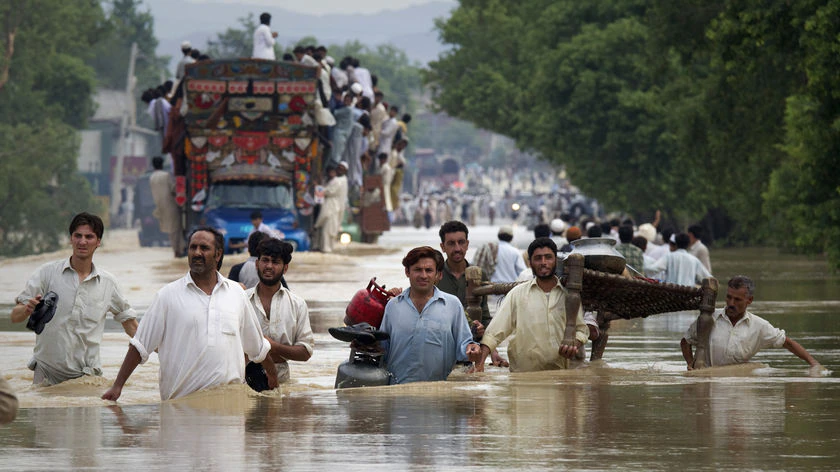(CTN News) – The Asian Development Bank (ADB) authorised a $400 million concessional loan on Friday to help rebuild residences and community facilities in Sindh that were damaged by disastrous floods in 2022, according to a bank news statement.
The 2022 floods were caused by strong monsoon rains and inundated one-third of Pakistan. The downpour affected over 33 million people and killed at least 1,700. Nearly 8 million people were displaced, and many are still living in tents and makeshift dwellings.
The Sindh Emergency Housing Reconstruction Project will use the concessional loan to rehabilitate flood-damaged houses and community infrastructure, as well as support livelihood recovery. The project aims to strengthen community resilience against natural hazards caused by climate change.
According to the press release, the project will provide conditional cash subsidies for the renovation of 250,000 houses with multi-hazard robust and environmentally sensitive designs.

“It will also support community-driven construction of infrastructure such as drinking water facilities, sanitation facilities, covered drainage, and renewable energy solutions for 100,000 households in around 1,000 flood-damaged villages in Sindh.”
The project will also provide conditional cash awards for livestock, agriculture, small businesses, and e-commerce, according to the announcement.
The bank stated that the initiative was a “key part of ADB’s multifaceted response” to the country’s flood catastrophe, and it was part of the bank’s commitment to offer $1.5 billion in overall support from 2023 to 2025 to speed Pakistan’s flood recovery.
“This project will help rebuild homes and communities, as well as restore livelihoods and basic services in Sindh, the province most affected by the devastating 2022 floods,” said ADB Director General for Central and West Asia, Yevgeniy Zhukov.
“It is part of ADB’s extensive support to help Pakistan recover from the disaster which affected 33 million people and damaged houses and infrastructure across the nation,” according to him.
According to the ADB, Sindh experienced over 83 percent of the entire housing loss caused by the 2022 floods, with approximately 2.1 million dwellings either completely destroyed or severely damaged.
It further stated that two years later, the victims were still living in inadequate and temporary shelters that lacked basic utilities such as water, sewage, and power.

“ADB’s support will not only help Pakistan rebuild better, but it will also promote community-led climate resilience and disaster risk management strategies to better prepare for future hazards,” ADB Director for Water and Urban Development Srinivas Sampath stated in a press statement.
“We are coordinating closely with other development partners to support the government’s recovery and reconstruction priorities.”
The ADB stated that the initiative would also help the government’s resilient rehabilitation, reconstruction, and recovery strategy (4RF) and would use an integrated and sequenced approach, ensuring that investments across sectors complimented one another.
“A $500,000 technical assistance grant will further support the government’s operational capabilities in procurement, safeguard compliance, and technical and financial management,” according to the announcement.
The bank stated that it was committed to establishing a prosperous, inclusive, resilient, and sustainable Asia and the Pacific while continuing its efforts to eradicate extreme poverty.
In January, ADB announced its support for seven Central and West Asian countries, including Pakistan, to strengthen the private sector’s role in providing inclusive, accessible, adequate, affordable, and climate-resilient housing ecosystems that prioritise the needs of disadvantaged populations.
In May, the bank announced a $180 million project to repair woods, drains, and roads along Sindh’s coastline.
In April, the ADB stated that Pakistan’s economic outlook was uncertain, with significant risks on the downside. Political instability remained a critical risk to the durability of stabilisation and reform initiatives.
Source: DAWN

Anna Wong serves as the editor of the Chiang Rai Times, bringing precision and clarity to the publication. Her leadership ensures that the news reaches readers with accuracy and insight. With a keen eye for detail,














